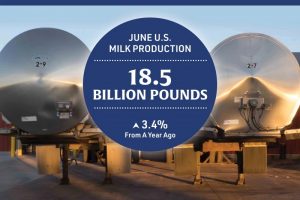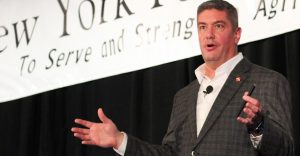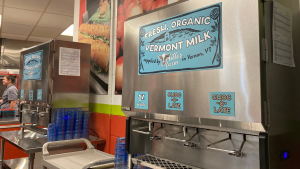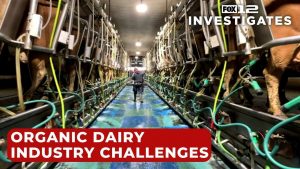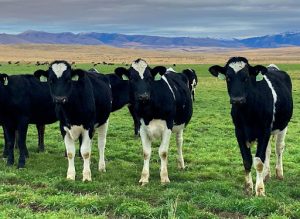
Northeast organic dairy companies are trying to recruit consumers to help strengthen the industry after news that 135 farms in Vermont, Maine, New Hampshire and New York will lose their milk contracts.
An initiative announced Wednesday by Gary Hirshberg, co-founder of organic yogurt maker and dairy company Stonyfield, encourages consumers to sign a pledge to buy a quarter of their weekly dairy purchases from 35 brands.
The brands, including Stonyfield, have committed to increasing the amount of milk they purchase from Northeast organic family farmers, Hirshberg said.
“It would be one thing if we were talking about citrus, but with dairy products that can and should be produced in the region, we’re betting that significant numbers of consumers will vote with their dollars to keep these organic family farms in business,” he said.
Horizon Organic, owned by Danone, announced this summer that it would stop buying milk from 89 organic dairy farms in the Northeast next August. Last month, it offered to extend those contracts another six months.
Vermont Agriculture Secretary Anson Tebbetts said this summer that the company told Vermont officials that it did not want to transport milk from the region to its plant in New York and will focus their business on larger farms in the Midwest and West. Maple Hill is also terminating contracts with 46 organic farms in New York, officials said.
The initiative, which is called the Northeast Organic Family Farm Partnership, has the potential to make a difference but research suggests that similar voluntary nonbinding pledges for charity have an immediate impact but longer term people may back out, said Christopher Wolf, a professor of agricultural economics at Cornell University.
The technology used by Goodrich Family Farm is being lauded as sustainable.
“I think the key is you’re going to have to get people in major metropolitan areas, Boston and New York, to kind of get on board and develop a habit,” Wolf said. “You want to get them to form a habit because these dairy farms need longer term commitments. You can’t be day to day, or week to week or even month to month, if you’re going to be dairy farming. And so that’s kind of the big problem.”
In the meantime, a regional task force made up state departments of agriculture, university extension and organic processors and associations last month made recommendations to the U.S. Department of Agriculture about how to support the Northeast dairy industry after the cancellation of the farm contracts.
It recommended developing institutional markets, such as schools, to increase the demand for the region’s organic milk; expanding the processing of milk into products; and supporting technical assistance for farm improvements. It also suggested ways to reduce transportation costs for farmers to have their milk distributed and to increase and retain regional truck drivers.




